This continues the Organomic Thesis.
If you’re new, you may prefer to start with the Primer, or once you have an understanding of these arguments feel free to jump ahead to the math of the Tenets.
Year Zero: Progressive Economic Primer I – II
The Organomic Manifesto III – V
The Tenets of Organomics VI – X
4 Books to Change the Future of Economics
Join the discussion at our Facebook Group by clicking here.
Watch me discuss the theory with anthropologist Michael Kilman on Youtube
Updated: 7/28/23
Free PDF & MP3 Coming Soon | Book in 2026
III
A storm is coming. Let there be no doubt. The ghosts of our children’s children loom in this cloud, a banshee wailing with the sound of a typhoon, and they warn of a rapidly changing climate, mass extinctions, the acidification of our oceans and desertification of our lands. A machine is churning around us, a deafening, mindless complex, devouring resources – the beast of our economy is self-perpetuating.
Human influence is warming the climate at a rate beyond anything in the last 2,000 years. CO2 concentrations in the atmosphere are at the highest level in 2 million years, with methane and nitrous oxide at the highest levels in 800,000 years. Global surface temperature has increased faster since 1970 than in any other 50-year period in that same 2,000 years. Global mean sea level has risen faster in the last 100 years than in any comparable period in 3,000 years. (IPCC report, Climate and Environment, 2021). UN Secretary General Antonio Guterres, after reading this report, declared nothing less than a “Code Red for humanity.”
This storm does not come without warning, but without empathy, and it presents a pass/fail test for humankind, requiring us to reprioritize and act in concert as a world body like never before, setting aside our differences and recognizing that no faction alone can hold the blame. To face this challenge will require collective will and imagination – an intelligent choice to evolve together, looking past our shortsighted aims and errors for the greater good of our children, who are unable to defend themselves from our parents’ mistakes, and for the generations yet unthought of, who may look back on us with disdain or new hope. It is up to us to rise to the challenge, but the real questions brought by this storm require new answers.
8.3B tons of plastic have been produced since the early 1950s, with 60% of that ending up in landfills or the ocean. In fact, our oceans could contain more plastic than fish by 2050 (UN Environment Programme Report, 2018). 300M – 400M tons of heavy metals, solvents, toxic sludge and other wastes from industrial facilities are dumped annually into the world’s waters, and fertilizers entering coastal ecosystems have produced more than 400 ocean ‘dead zones’, totaling more than 245,000 km2. 1M plant and animal species are threatened with extinction, more than at any other time in history (IPBES Global Assessment Report on Biodiversity and Ecosystem Services, 2019). 40% of all insect species are at risk of extinction in the coming decades (Worldwide Decline of the Entomofauna, Biological Conservation Issue 232, 2019).
This General Theory of Organomics is a remodeling of economy, a new scientific process to study the principles that govern the superstructures of our lives. Ecological sustainability is paramount, and real costs are not to be excluded from economic analysis any longer.
In essence it may be viewed as a specific kind of Systems Theory, separating the subsystems of the societal body into manageable blocks. Section VI of this Thesis will present the Tenets in a bulleted list, while Sections VII – X come to mathematical conclusions, compiling verifiable studies and statistics from around the world. Before we get there however, this Manifesto makes the case that emergency action is needed to change our cataclysmic path, and that these ideas which may seem radical at first, are in truth far more grounded than the idolatry, nationalism and bad math which has come before. General Organomics will change our thinking, helping us create sustainable, scalable, realistic plans for the simplification and liberation of our lives.
Nearly half of the world lives on less than $5/day (World Bank, 2020). Over 700M people around the world live in abject poverty, on less than $2/day (UN, 2015). If you are above the poverty line in the US, you are in the top 14% of worldly wealth (data presented by the Brookings Institute, in the report titled Unprecedented Expansion of the Global Middle Class, by Homi Kharas, 2017). Yet, odds are, you don’t feel rich even so. Across class lines, the mass of humanity experiences a very real poverty of time.
The common sense paradigm here revealed leads unavoidably to answers that are among the great modern heresies – demolishing the outdated understanding of economic limits and how they shape our future. The eradication of poverty does not require taxes. We can raise living standards, worldwide, without dangerous inflation and without reducing unemployment – ending the cycle of wage slavery. In a robust, thriving systems economy, nobody need lose their house due to disaster – market crash, pandemic or otherwise. Organomics provides the very tangible means by which we may face down climate change and mass extinction, with both feet on the ground and every possible tool at our disposal.
The study of Social Organomics is in original form here and makes no pretense otherwise. As such, all readers and thinkers, professors and children alike, are encouraged to take part and bring this necessary body of thought closer to fruition. We need more graphs, more studies, more memes. We need community-builders, speech writers and active leaders. We need illustrators, humorists, and activists of all types. What we must have in common is a will for evolution, and a general understanding of the stakes. This is a body of thought revealing, conservatively but without question, more wealth than the entire world economy today. In the US alone this is a conservatively estimated $49.93T/year aGDP. We don’t need to agree on every detail, to push forward aligned. All that must bind us together is the simple belief that yes, a new way can be defined. Yes, these problems, however complex, can in fact be solved in time. If at the end you believe as we do, that applied systems science is the route to a sustainable future for us all, then we invite you to take the mantle as your own. Welcome.

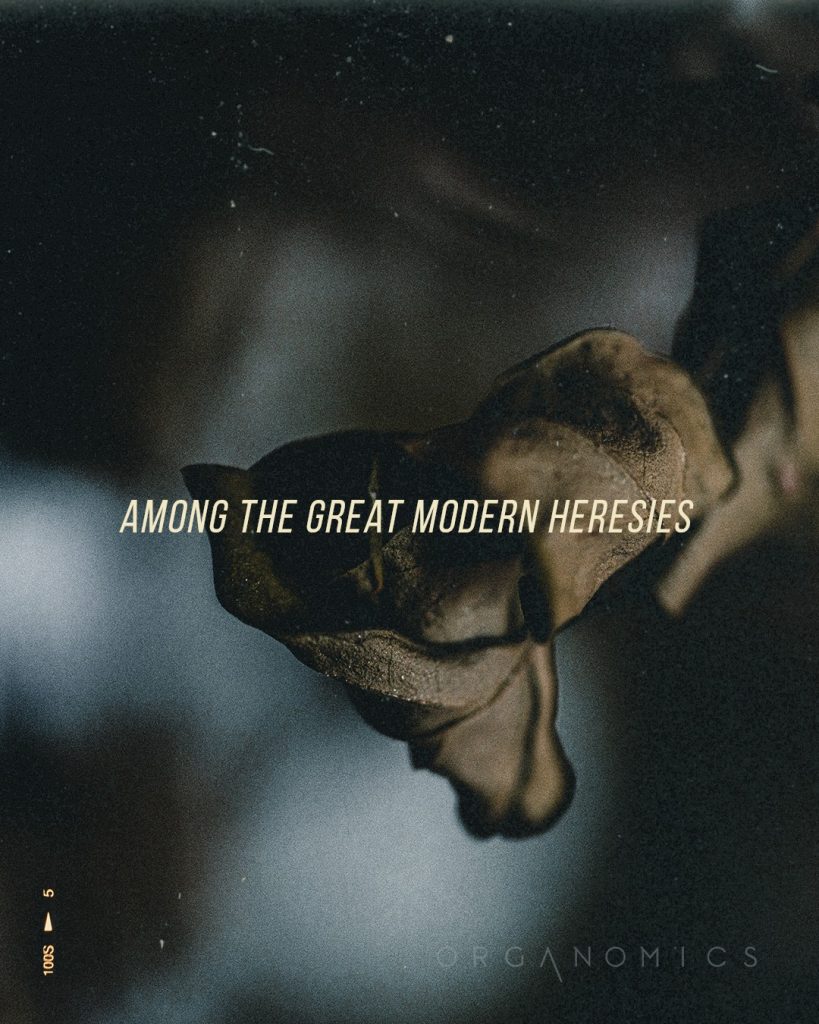
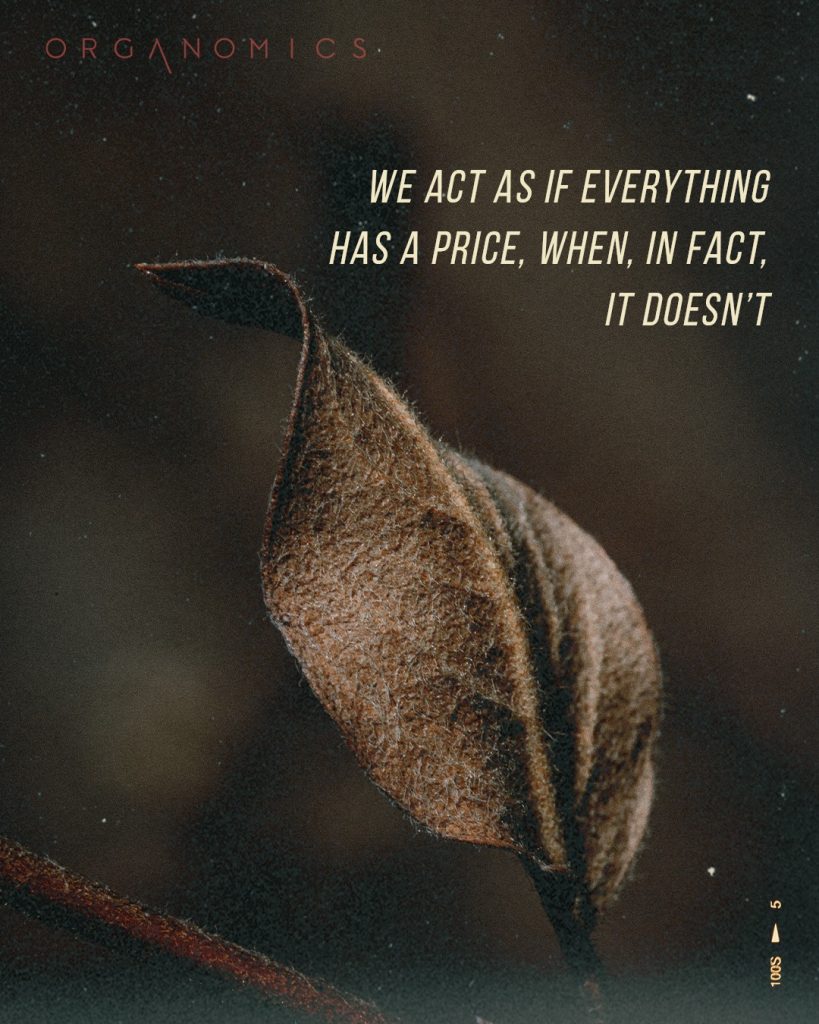
Let’s talk about money and how it has come to rule our lives. More important than politics, more revered than law, nearly all corners of the Earth now bow to the dollar. Religion, family, business, all submit to the need to earn a living. Growing up in this environment you may have thought to ask, “Why?” What – exactly – is it?
If you can’t immediately answer that, you are far from alone. A good study will reveal a parade of answers, but only rare agreement short of the plead, from rich and poor alike, of “More please.” If you’re in one camp or another that thinks they have it figured out, whether Austrian, Marxist or otherwise, even so you’ll likely admit that broad agreement is rare. While it’s easy to philosophically debase the idea – we’re hardly the first to try – it’s much harder to provide a satisfactory answer to this question, at the very heart of economics and so therefore of our lives.
We’ll start quite simply with a negative, and as obvious as it may seem right off, it is in fact the hinge on an epic door:
Money does not equal wealth.
Sometime about 7,000 years ago, people first started using forms of basic metals as a medium of exchange. We’ve been trying to understand it ever since, arguing over what it means but rarely failing to chase it.
Around 500 BC, the Chinese sage Confucius considered true wealth to be measured not by coin at all, but by a lack of wants. Adam Smith, taking a different approach in 1776, defined it in terms of scarce goods and authoritative power, and nothing has been quite the same since. Karl Marx, in 1867, made his name by putting wealth into materialist terms when he analyzed class subjugation, labor-hours and the means of production. Modern economists have gone on to define wealth as a stock of money with intrinsic, stored value (Keynes, 1936), a fiat monopoly (Mosler, 1995), more specifically as net worth (Business Insider, 2019), or a combination of these along with such intangible values as living with a sense of purpose, and good health (Huffpost, 2017). The concept of Gross National Happiness was first coined in 1972 by Sicco Mansholt, gained international recognition in 2012 when it was recognized at a high level by the UN, and includes a still broader set of 9 basic values. Lastly, the macroeconomics favored by large financiers today run on systemic models known as DSGE, and utilize literally hundreds of data points in an attempt to pin down and predict the moving targets of the marketplace – to figure out just what a thing is worth.
Taking a less common angle on this story, given the average modern lifespan at 79 years, it has been 89 lifetimes since the earliest evidence of the dawn of coin. Only 32 lifetimes have passed since Confucius pondered the concept, a mere 3 since Adam Smith and the founding of the United States, and barely 2 lifetimes have elapsed since Marx introduced us to modern labor-hours and the struggle of the proletariat. In this view it becomes clear that our history may be shorter than we often suppose, the question itself younger, and our own part, however humble, more likely than we may have thought to alter the course. What is evident is that the question “What is wealth?” is very much alive and unfinished today. Each generation has revealed an answer more complex than the one before, until we are left, in 2022, with a science of macroeconomics becoming more and more like trying to forecast the weather.
Studying economics without a definite concept of worth would be like playing in the NFL without a consistent standard of the yard. Every 10-yard line is different depending on who has the ball, and no two fields are the same. The value of a touchdown depends on fluctuations in the stock market. There are plenty of variables as is. The density of the air will change depending on the stadium, the muscles of the throwing arm will change for each QB. Players’ paycheck valuations will in fact fluctuate with the market. Yet without a consistent yard and reliable scoring mechanics, there is absolutely no game.
We live and die for a system just like this, a system of relativist wealth. From gold to labor to fiat systems, Keynes to Marx to Mosler – dollars, hours and yuan may be compared, like diamonds, watches and gold, but without a shared basis any more stable than a constantly shifting, purely numeric trade value. It may seem basic, but the importance of this should not be understated. Major institutions and billions of dollars every year are devoted to ensuring this variability remains in-bounds. In the clear light of day, without remorse, we’ve reached an extreme where civilization itself depends on it. Preventing wild inflation prevents market crashes, a matter of national vitality.
Between the lines we have conceded human wants can’t be easily predicted – an understandable caveat – and so we focus intently on that dollar, as if it were a separate phenomena. From dense logarithmic equations like the Thiel, a macroeconomist will draw hyper-specific answers, but what do they mean? We busy ourselves, pretending to understand the ceaseless motion, and the science now, though specific to the logarithmic dime, is less accurate than meteorology. While no small achievement the entire field has very limited use. Nobody knows what the market will do tomorrow, or even today. Macroeconomics cannot predict a thing.
All that we know for sure is that it costs money to survive, and if we’re not careful the value of that money can quickly spiral out of control. In personal and collective life we end up chasing this medium of exchange as if it were the holy grail – the football at the center of the universe.
As Organists we do not shy from complex questions, but simplicity is our guiding star:
Wealth is what allows us to thrive. Wealth is anything at all that reliably supports our lives.
It satisfies our wants, like money. It nullifies our fears, like money. Yet if you have a family, if you have dreams, if you believe in conservation, if you’ve ever felt the grace of giving, or receiving, anything, you may be a step ahead of the argument here, to see that wealth itself stands for so much more. This is not just a feeling. It is not just a number, either. As we move beyond mere quantification, it remains a matter of verifiable, algorithmic function. This is more complex than mere mathematics. We need to understand not only what it is, but also why.
The Organomic Spectrum of Value – the processes, ideas, labor and things that we produce, consume, own, share, gift, trade, preserve or steal – is itself only the beginning of a description, even yet no pretense of a yard. Think of it more as the wood out of which we will carve our rulers – natural and practically unavoidable in their true form.
Macroeconomics recognizes but a fraction of this spectrum. It is sorely lacking to describe reality, and so long as we insist on this blindness to real costs it will lead us, bullheaded and tied at the wrists, into the storm of ecological catastrophe.
We share this spectrum, as a fundamentally similar reference frame. With no obsessive need to quantify and divide, we speak here at first only of describing and then grouping, leveraging an object oriented approach to algorithm. Balancing this spectrum is not like a traditional household budget, but more like raising tentpoles, and in the light of technological evolution it becomes clear that we must do multiple things at once.
We can feed the hungry of Africa and colonize Mars. Both are within scientific reach, and this Thesis will demonstrate by Section X how they are both within economic reach as well. In this sunrise of plenty, many of our divisions simply evaporate. At home amid the more mundane, an individual may value a drink, where another wants a new canvas, ready and stretched to paint, and yet another is preparing for their doctorate – or AA meeting. Measured by this spectrum, compiling a sea of statistics, we see that 1st world society has more than enough – even too much – of nearly everything, save money itself.
Contrary to established theory, our currency is dramatically restricted when compared to actual surplus and production. Too little money is holding us back, causing inflation, a self-perpetuating scarcity dividing us, tricking us into fighting over food and shelter, of which we have built far more than we need. The questions at the heart of economics are changing faster than the books can keep up with. In this unprecedented, post-scarcity paradigm, outdated theory is leaving us entirely unready for the cataclysmic problems of surplus and sustainability.
Our calling today may be described as a more Shakespearean dilemma. What will we choose to be? If we could do it all, what would we become?
Many of us just want to live, to raise our families in an empowering and creative environment, to pursue our futures in good health and security. The scope of our aim is not in fact infinite. In this new world we can do many things at once, and our social priorities are not actually so hard to define. Centuries of study have brought us to this point, so it shouldn’t be such a surprise that we’ve made real progress. We can end poverty, now. We can end war, now. Wage slavery is obsolete, and climate catastrophe is not inevitable, if we will act together, with everything we have, in this moment.
Our philosophical divisions – capitalist, socialist – have much to say regarding our shared values. The 20th century saw these two systems at opposite ends of the socio-political spectrum, no less than the crux of outright war, but the Organist in 2022 has little trouble identifying powerful similarities. We recognize their joint evolution. Neither exists without the other in any part of the world today. The Chinese stock market and US safety nets speak volumes, and are hardly outliers. With such evidence at every turn, the pretense of stumbling over left/right conflict is no more than a diversion in the face of our real troubles.
To some readers this may seem rose-tinted today, but the coming generations simply will not care about these tired arguments. They will not have time for “cold” wars. Does capital fuel innovation? Does labor create value? Does every being have a right to the inheritance of the species, and a real stake in our social future? Of course. It is time to move forward.
Avoiding the middle trap of broken compromise, we instead carve our own inclusive path. Both systems concern themselves primarily with value, labor, trade and livelihood, and overlap far more frequently than their die-hard adherents would avow. We step off gratefully from the train of Marx’s materialism and Smith’s accounting, but there is no question that the full landscape is larger even than their combination. Considering both systems, together, is no inherent contradiction to the Organist, and is yet missing the vast majority of what is really going on.
If the economy is like a football game, the Capitalists and Socialists squared off, some in black suits with blue ties, some in blue suits with black, we’re here to point out the bigger picture. The meteor – burning through the stratosphere above the stadium – is an apocalyptic mountain of stone and fire, careening toward us all.
The full picture is larger than currency, larger than trade, larger than inflation, larger than who owns the means of production. It’s larger even than dire predictions of any single catastrophe. We will justify it in monetary terms, to satisfy critics and provide an off ramp for macroeconomists, but this should not be mistaken for an endorsement of the old paradigm.
All economists, even the true believer of the Austrian school, are yet welcome at our table, though we will have our disagreements.
Fear not. We will make markets stronger.
What is the limit to what we can accomplish, if we stop fighting for just a minute over every bit of pocket change? Even our richest – leaders of nations, corporations and movements alike – are swimming in the kiddie pool, so to speak. They measure hours instead of lives, coins instead of wealth, like ancient Kings adorned with jewels and gold in excess, who haven’t yet heard of a cell phone or vaccine and can’t even imagine a flushing toilet and hot shower. What is the modern standard? This question undermines all economic debate.
The honest answer may not be so much undefinable as incalculable. The representative basis and absolute limit of our collective economy is one and the same, and for the Organist this is nothing less than our real productive capacity. For a technological superpower in 2022, this number will boggle the mind with enormity – should we measure the Rocky Mountains, the sun and the entire US population? Should we measure the full internet, every article, videogame and download? Despite general agreement that such a limit exists, very few have attempted its calculation.
The question of “How much?” in macroeconomics is obscured by faulty notions of productivity, like those in current models for GDP and taxation. Counting consumption as production and destruction as creation is a dubious kind of math, at best. Section VII of this Thesis deals with the true costs of war and environmental degradation, both of which currently, inexplicably, self-destructively, measure almost entirely positive to GDP.
Scaling all of social spending against a 24.5% rate of taxation (OECD Revenue Statistics, US 2019) also fails to show an empirical foundation. As a default stand-in, made all the more subjective after the gold standard was abandoned with Bretton Woods, little serious evidence has been produced to warrant weighing federal spending against taxes.
Generally it is justified by a fear of inflation – there’s that relative currency again – but such balance has never been achieved or proven, in the history of the US. Throughout the latter third of this Thesis we will systematically dismantle the illusions of monetary scarcity and inflationary risk like the economic insects they are.
What seems out of reach today, tomorrow will be common sense.
This doesn’t mean we can immediately spend the equivalent of our entire GDP to fight climate change – without a proper plan. But it is every bit enough reason to take a hard look at exactly what we’re measuring when we lay out the math of national production, and why. In Sections VII – IX of this Thesis we will return to the question of Organomic adjusted GDP (aGDP), for the first time calculating what our full productive capacity may be. That number will conservatively approach US $50T/year (2020). The uncomfortable truth is that we have everything we need, right now, to accomplish everything we must, today, and usher a new era for humanity, like nothing seen before. The unfathomable truth is that if we fall, it is because we choose, even if out of blindness, to fail.
The spectrum includes gifts, ideas and economic modifiers completely outside of trade. We can define aGDP to more than double standard GDP, and still be nowhere close to charting all wealth. So in the end we’ll be designing flows – inputs, mechanics and outputs that together describe systems within the larger body. The primary language of this new economics is function. We are not trying to predict a thriving populace. We are trying to cause one.
So if the means to our collective ends can be represented by this Spectrum of Value – the What? of worth – we have yet one important variable to clarify.
Why?
What exactly are we going to do?
We’ll return to that outrageously complex question in Section X. Here we have begun a scientific, open framework with both feet on the ground, one in which money does not equal wealth. Wealth has a much wider meaning than trade. Worth is about far more than this false idol we’ve put in charge of our lives. Have we ever even seen it in full?
In servitude to unanalyzed, relativist profit itself, we’ve become nothing less than an addict. Subjugated by a too-slow flow of cash, afraid to control this monster of our own creation, we’ve let greed and competition blind us to what is possible.
Here the premise is bare.
In modern life we often act as if everything has a price. In fact, believe it or not, it doesn’t. What real costs have we been ignoring? So long as we refuse to face it, we remain like Narcissus at the mirror, unaware as our true appearance becomes more and more zombified.
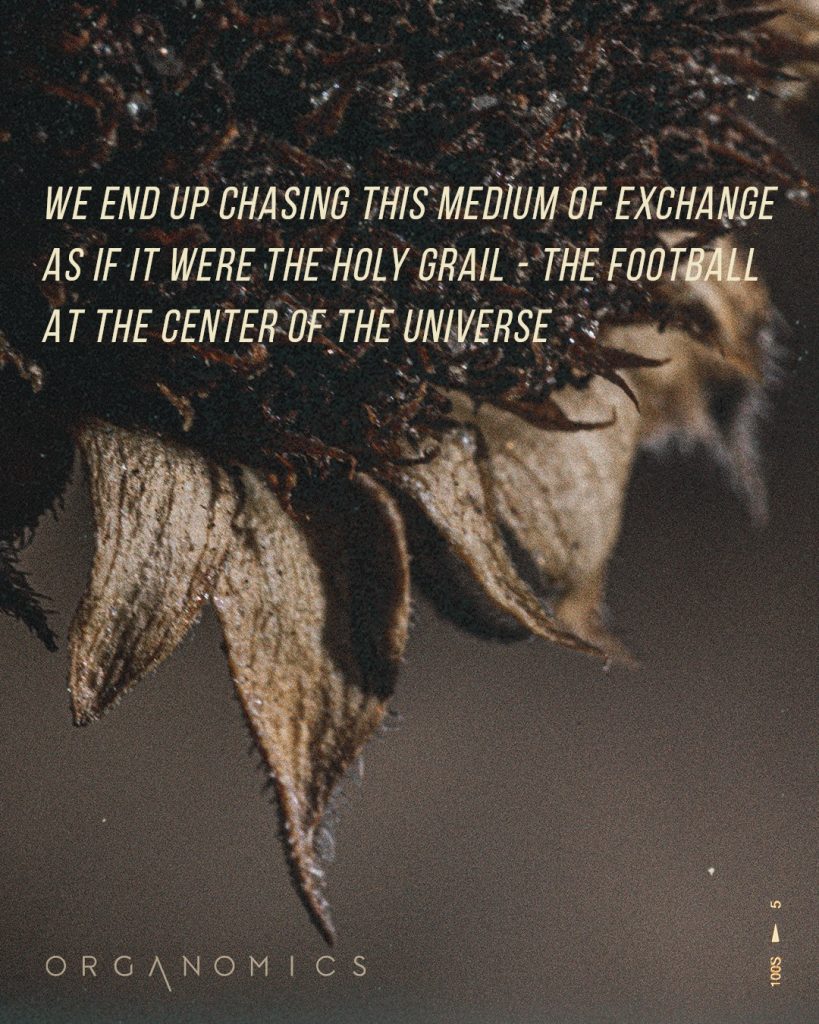
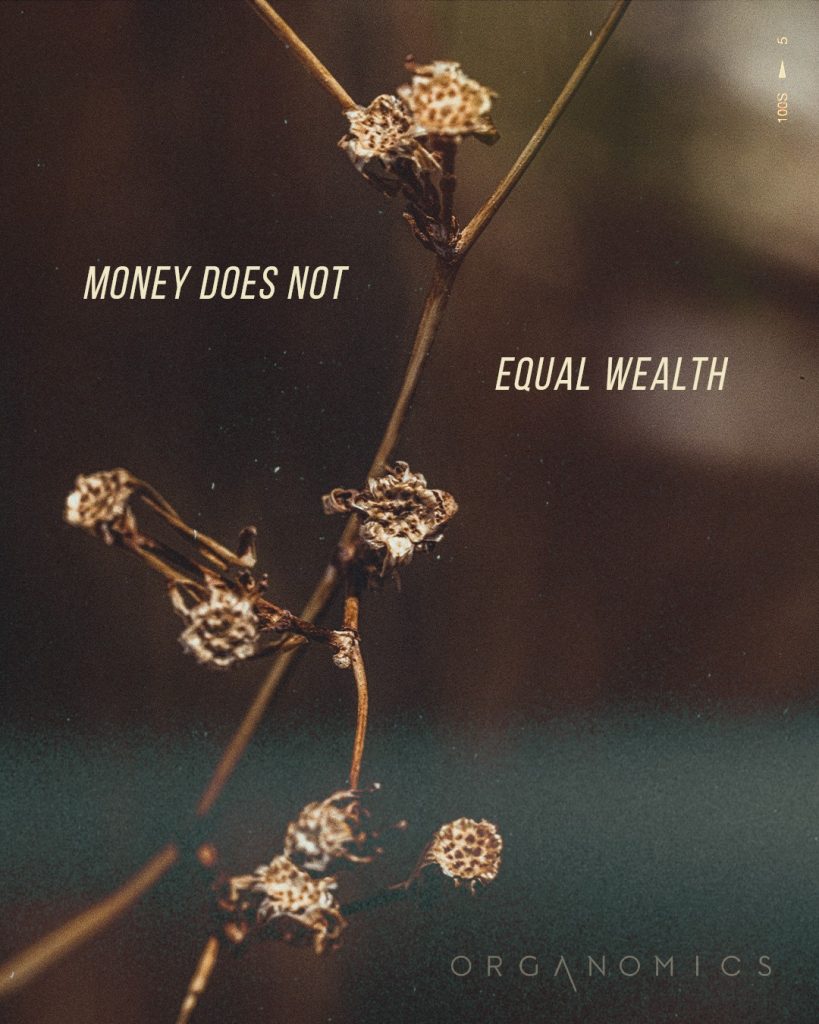
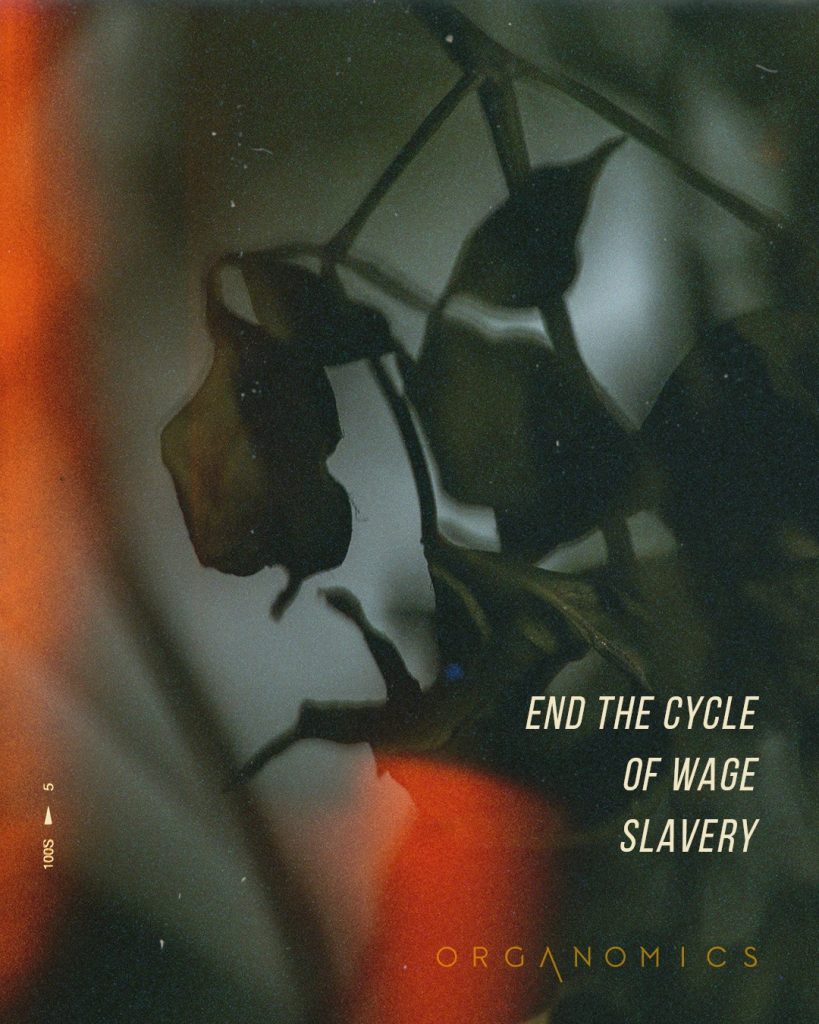
IV
Organomics is a science born in protest. Without vilifying either capitalists or socialists outright, we are in diametric opposition to the domination of society by moneyed accounting, ownership and trade. The false crown has circled the world, corporations run vast segments of society, and nearly everywhere the masses are expected to spend our very lives in competition for a dollar. Our system has us beat, across class lines, to the point of the commodification of nearly every hour, talent, square foot, home and organization. Even non-profits must balance a budget to exist – rich and poor alike must pay their bills – and it is widely believed that this is inevitable.
Under this restricted currency we scrap for every dollar, pressed to compete in all things, to be the cheapest in order to survive. Organomics demonstrates that this allegiance to scarce money is not only unjust and avoidable but unscientific – a wishful mysticism – and truly counter-productive, a mechanical terror robbing us all, rich and poor, of our living inheritance. For profit in itself we are depleting irreplaceable resources, poisoning ecosystems, privatizing infrastructure, and losing the productive years of our lives. We plan the obsolescence of our products before we buy them, in service of a relativist medium that is poorly understood, often parasitic and yet universally desired.
As plain as it may seem, looking at economic and social structures in the context of algorithm and systems science has been a late comer to the scene. Our urban consolidation progresses, with thousands of miles of blueprints that, if not always brilliant, bear testament to lifetimes of work. Yet our expansion to every corner of the Earth has been driven often by unguided evolution – raw market forces – trial and error resulting in entrenched, profit-bearing institutions today that are widely in need of deep correction, from environmentally destructive, viral miscode.
In the societal body there are many organs, with input, processes, and output. When the input and output are in the same medium – like a snake eating its own tail – the risk for cancer-like expansion accelerates.
Money in –> money multiplied –> money out [repeat]. In wall street and casinos, retail and wholesale, this positive feedback loop of profit and investment has wound itself into the inner workings of every form of distribution, governance, real estate and recreation, until it has become indistinguishable from production itself. However, profit is no benign passenger, these days demanding absolute legal obedience, at all costs. Money, trade and profit have become more socially fundamental than law and democracy themselves.
Our judges meet out punishment in monetary terms. Our leaders compete via the money they spend to campaign to lead the world, limiting the pool of serious candidates even among democracies, most often, to multi-millionaires, for no reason other than that they are multi-millionaires.
The moneyed vine winds in – you’ll find the fingers of this simple machine – in the arts and sciences like anywhere else. Without funding their programs evaporate. Our best athletes are rewarded in money. Heart transplants take a back seat to the exchange. Mechanically we pillage, before we even know it blazing through our resources in the name of consumption – destroying forests, leveling mountains and potentially nearing the ends of our real oil stores. An economy is only healthy by macroeconomic theory if it is fueling growth, full of constant consumption – jacking up the GDP, productive or not. The more we are involved in normal economic activity, the more we use. Single use plastics and disposable diapers are but the foam in the rapids of our burning rivers of oil.
The extraction of resources around the world reached a record 92B tons/year in 2017, and is continuing to grow. At the same time, global population has doubled and worldwide GDP has quadrupled just since 1970. Per capita, we now consume over 12 tons of material resources per year. In high-income countries this number spikes as high as 27 tons/year. “Unless a fundamental change drives natural resource use away from the status quo, this use will continue to grow to 190 billion tons and over 18 tons per capita by 2060. Moreover, [according to] historical trends, greenhouse gas emissions will increase by 43 percent by 2060.” (Global Resources Outlook, 2019, United Nations Environment Programme)
A storm is coming, and unequivocally, that storm is us.
We are addicted to it, but it is no straight-forward chemical dependency. We’re addicted to the stuff of life.
The interplay of capitalist/socialist innovation for hundreds of years has fueled a growth spurt in our collective evolution like no other. Our addiction – stripping the rain forests bare – is to the same coin, the exact same coin, that feeds us like never before, clothes us like never before, houses us with 85-inch TVs and robot vacuums like never before. Our cars drive themselves and our 4K cameras are either in our cool pocket-communication-device, or they are integrated parts of ultra-stabilized flying drones that we can control by remote with our cool pocket-communication-device. We have the means to end world hunger and colonize Mars, and to what can we give thanks for that modern world if not to those policies and revolutions – the investors, inventors, workers and the incentives driving them to create these incredible things every day? Skylines do not build themselves. How could we expect to have all of this without paying the price?
Well that, you see is exactly the kind of question Organomics is designed to answer.
Real costs are the only kind that matter.
We lack a mechanical understanding of the societal body as it stands, obsessed instead with ROI graphs and endless data points. This makes some sense, if your primary concern is the movement of a few dollars here or there – the amount of a monthly rent or price of a stock portfolio. These movements are based on the whims of unpredictable, volitional individuals, and so understanding them as an amalgamation like a rainstorm seems to make some common sense. We fixate on this level of microeconomic result – knowing our survival depends on it. Whether we can pay rent or not is the difference between us and that family on the corner, asking for anything. So in fear and artificial scarcity we mistake the purpose completely, restricting our currency to avoid minor inflation, yet simultaneously needing it on every wound.
Think of a record player. Now think of dumping a suitcase of cash on top of it. Does it play better? Or does all that paper get in the way of the needle?
It’s nowhere near as farfetched as it sounds.
Imagine the record player as a flow, an algorithm with inputs – in this case essentially a record and a power source –> internal mechanics – you’ll want actual schematics, but basically what you need to know is that the plate is going to spin and the needle on its arm is going to wiggle across the record –> and output – believe it or not if you line up these things properly the box will act as if it has come to life and actually sing. It’s kind of amazing. This algorithm, with proper input, can bring to life the voices of the dead. That’s science, certainly not classical economics, but if you don’t think it’s wealth then you must never have heard Prince play “Sign O’ the Times” in hi-fi.
Does that system function better under a pile of cash?
Many institutions will function better with a more distant relationship to their monetary accounting – or by removing it from the flow entirely. The player’s function is identical no matter if it is bought, stolen, gifted or shared, that is regardless of its origination cost – powered by solar, coal or a crank. Ownership is only important to the extent of its scarcity.
We will demonstrate not only a decoupling, but an inverse relationship of profit to function, and the same distinction of origination vs ongoing costs throughout social infrastructure – like college, the judiciary, grocery distribution, public housing and national defense. What if removing the profit motive from the machinery of war is not extreme at all, but the first step toward an intelligent end for violent international conflict, worldwide?
From small business owner to despotic warlord, money will never be the primary form taken by our real wealth, so let’s just shake that out of our heads once and for all. As a medium of exchange or stored value, its role is necessarily and always subservient to the Real Value – the processes, labor, ideas and objects which it may or may not represent as medium. If today it clearly seems that money has ascended to the primary role, to represent every want, some abstract and under-defined reflexive ‘worth,’ these trillion-dollar whims of rich nations and daily needs of impoverished families, that there doesn’t seem to be anything solid to back it up, that it is all a house of cards – it somehow just hasn’t been caught in the wind – the Organist will remind us that in fact real wealth comes in more forms than we have been accounting for.
Processes have been building in our stockpiles, as real as any resource. We quantify the surplus in some detail in Section IX of this Thesis – totaling no less than US $11T/year above everything we are already counting in GDP (2020). This should come as no surprise, really. It can be seen in the very things destroying us. Plastic oceans, brown clouds and landfills only decorate our opulence, taken as the backdrop of our lives. Instead of activating that wealth to serve us, to end poverty and homelessness, to bring humanity to the stars, we dispose of and display the excess, a grotesque narcissus if ever there has been.
The truth is, together we ride at the crest of a tsunami of wealth. We have too many McDonalds, too much retail, too many roads. Surging with the power of all of our ancestral heritages, worldwide, coming together as one heritage for the first time, dripping with the energy of the fossil fuels we’ve been burning – as if our cigarettes were made of liquid gold – transforming, multiplying, like the internet or high speed rail – even our waste is just the shadow of what we could really do. The only thing that could bring us down from this launchpad may be the exact lack of scientific awareness that we see all around us. If we act like paupers, because all we’ve accounted for is the paper, then yes, we may still starve, or far worse kill our incredible biosphere, draped with all of this jewelry but naked, blind, lacking even a concept of what we had, for a moment, right there within our reach.
The General Theory of Organomics is not a scheme to get you to give up your money, or your entrepreneurial spirit. Organomics will make our money go farther. Properly applied it will empower us to seek our potential, to work hard but to think first, to build sustainable systems because those are the only ones that last.
Life is a self-perpetuating system, where among other things life goes in –> life multiplies –> and life comes out [repeat]. Through trillions of interweaving iterations, evolution solves problems by lining systems up with other systems, in a web not unlike a spider’s, or a neural network. Laying each pole in alignment with the others, the entire system rises like a tent. Emphasizing growth, natural cycles rise and fall across millennia, never quite a perfect balance but always pushing and pulling, rising interconnected.
Our tragic struggle, no matter our mistakes, is a relatively innocent, possibly inevitable result. Moneyed economics has been a wildly positive evolution in the short term, for the broad collective while not always the individual, for the 1st world while not often for the 3rd, at substantial, irreplaceable environmental expense.
We are crossing thresholds for an important phase transition, like ice on the verge of becoming a liquid.
The trouble is that we’ve changed the time scale on which our evolutionary cycles occur. One system feeds into another in our economy every day, all day, and we’ve built innovation rewards so effectively into them that the systems are now mutating – organically changing within – so fast that evolution can’t keep pace with the pull, and we are falling out of balance in heavy, measurable ways. However we wouldn’t be on this ledge, were it not for the evolution of our minds, and institutions of change. We’ve established methods to allow ourselves to adapt. Protest, union, literature, democracy . . . Many of these too are now as mired with monetary vines and unable to effectively move for fear of losing profit, as any half-rate casino.
Applied Social Organomics is a science of non-destructive elimination. What is not essential, hinders. This is not a genocidal commitment to efficiency, let’s be clear, but it is a guiding principle of all Organomic design. If any element fails to lead prominently from the input to the output of the system, it is either tangential, parasitic, or completely irrelevant. This is Occam’s Razor applied to systems theory, granting that if a process can be described in simpler terms, it should be. It is the experiential understanding that energy wasted is wealth lost.
In listening to music there is a give and take, push and pull, between the artist and listener. The performer isn’t even present in the room when the record is heard, but the distribution of ideas occurs all the same. And in time this is part of how listeners become musicians. Absorbing information, transforming it according to their own, internal methods, and learning to create, putting back out into the world – perhaps a new song never before heard. Or even just a new take, or a new light on an old work, like Steven Wilson’s cover of Prince’s “Sign O’ the Times.”
Like water in a rainforest or blood in a body, healthy circulation is not a matter of a snake eating its own tail to survive, but rather a layered system with intrinsic filters and varied inputs. Our systemic boundaries will depend, as they do in anatomical study, on divisions of both function and form. They will rarely be completely separable save in theory. Yet like medicine, our study will rely on understanding these separations as they are, in all the reality of their nuance. Further, Organomics is the study of how these systems of a body self-assemble, emergent not only in competition, but in tandem.
The organic world is our model, most often, but the Organomic Theory does not promote any simple return to nature.
Only sustainable systems survive. So together we must find ways to simplify, understand and evolve our modern life into a sustainable version of its better self. By recognizing that money is not the lone pillar of economics, we can free the masses from superstitious devotion to this overbearing, little understood, parasitic system, from within, without abandoning any momentum toward the future.
We can overcome the whirlwind of these unintended consequences, invest in our people, planet and future, to become a technologically advanced, space-ready race, with the power of vital, endless imagination at our disposal.
The choice is real. It is ours to make.
What will we be?
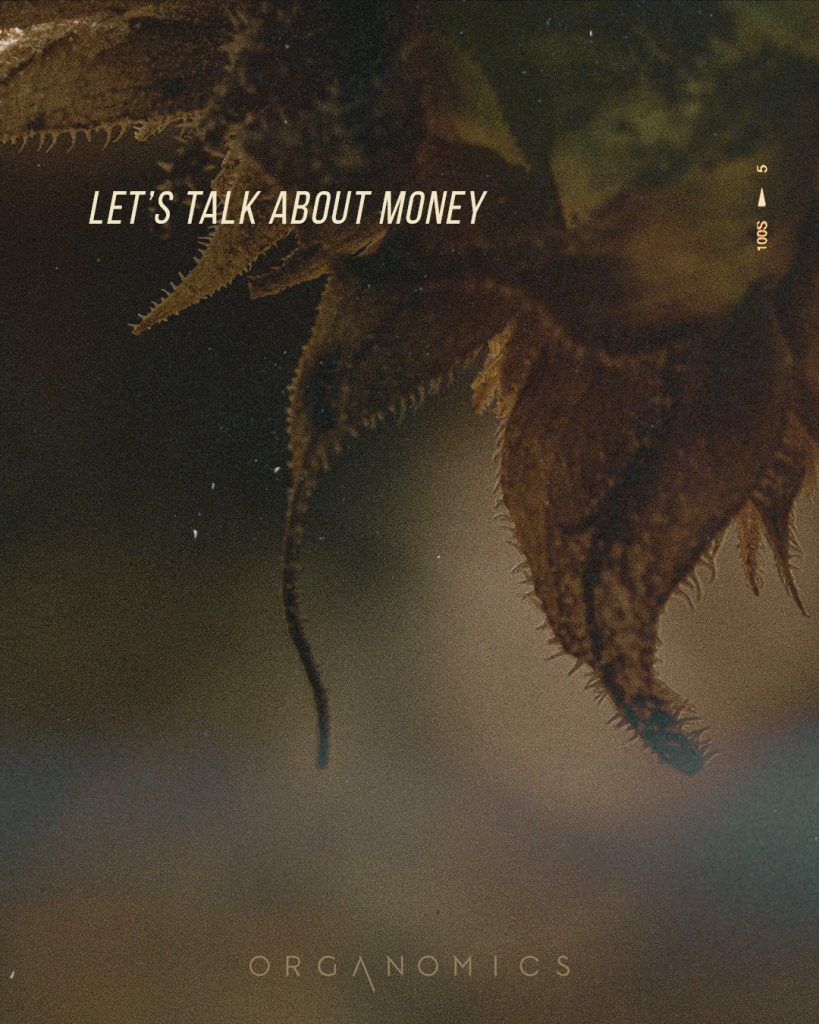
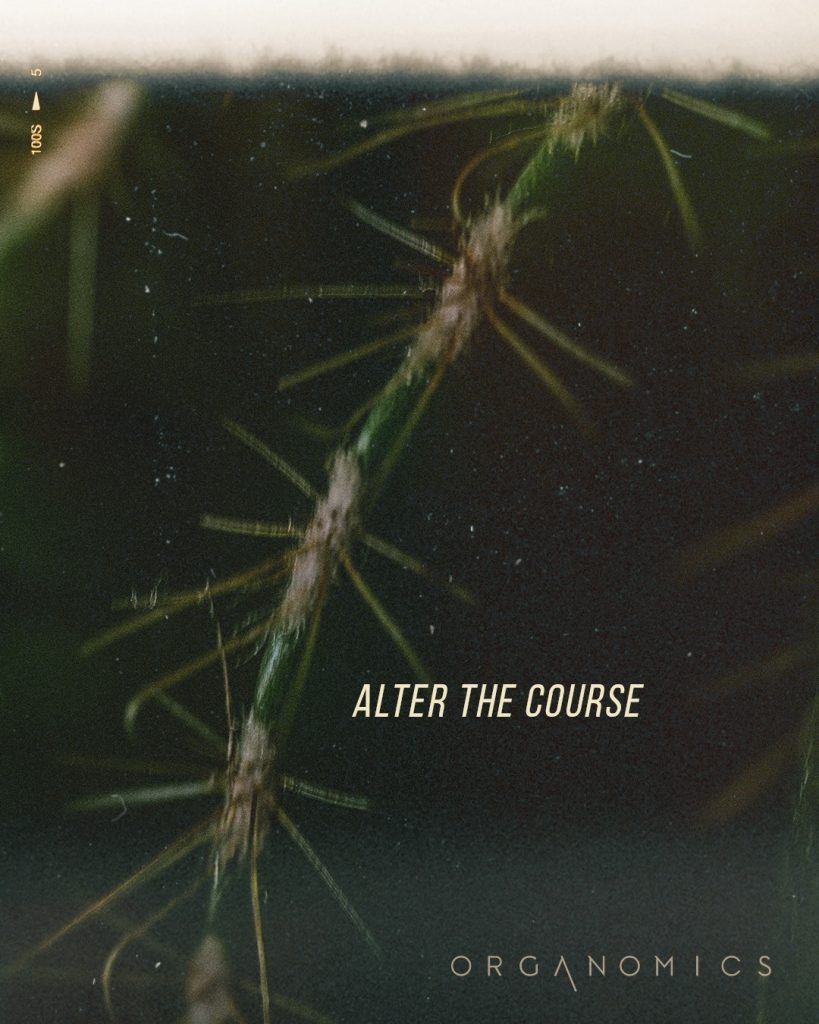
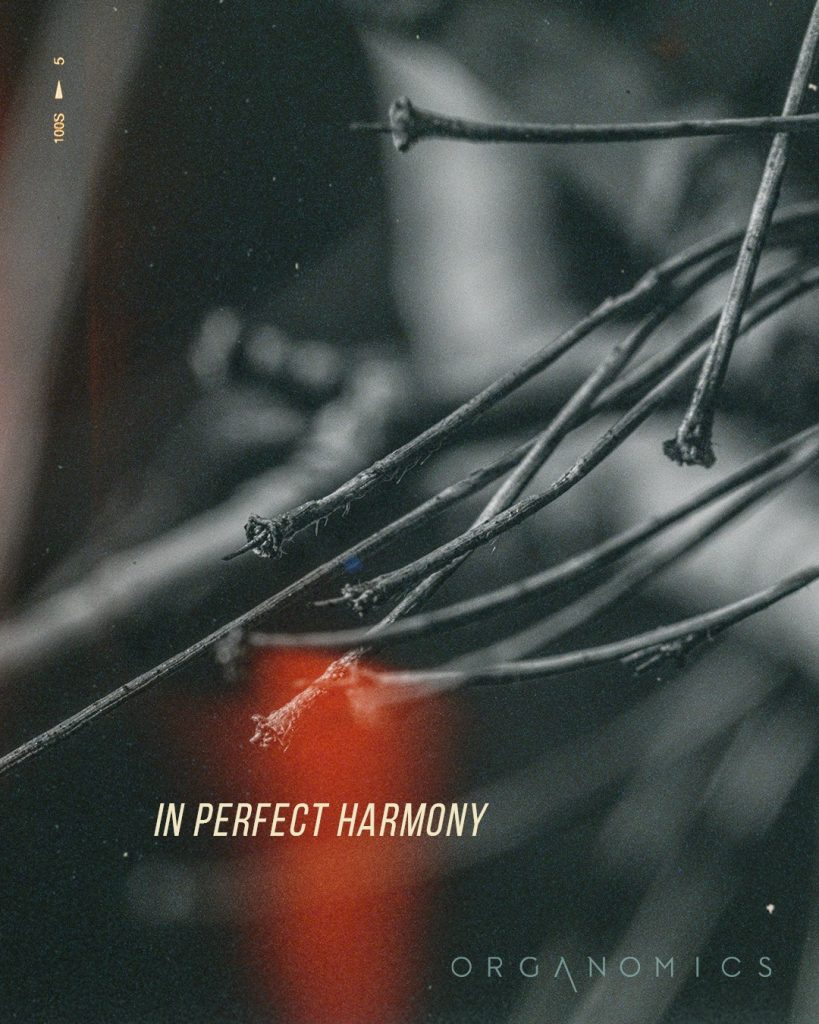
V
Anticipating critics and the future of the science, we bring many tools to the table. Here we’ll look at some fast critiques, and then broaden this Manifesto with a preview of the Tenets and the Special Theory of Sections VI – X.
An economist of the Austrian school might say: “These problems are environmental, not economic. This sounds like a slide – no a jump – into communism. The bill will always come due. If the government would just get out of the way, the market would correct for all of these things.”
We’re burning through resources, presiding over the largest mass extinctions since the death of the dinosaurs, simultaneous with an upsurge in greenhouse gases on a timeline nearly unrivaled in geologic history, and it is actively destabilizing the planet. We have the means to end world hunger but choose not to.
Ravaged by pandemics, threatened by extinctions, sold to the lowest bidder, humankind is ready for a real, open, scientifically grounded answer. While factions persist that disagree about these causes, still the existential need for systemic change cannot be overstated in 2022.
“Pure” economics is not more scientific. It demonstrably ignores science at every inconvenient turn.
However, Organomics agrees with even the Austrian in part. We favor simplicity in government. Desperate to lessen the importance of profit in our lives, we demonstrate it as uninvited and often parasitic, and this call means direct changes to the ways we govern. Governments are, by and large around the world, obsessive and compulsive about their ultra-detailed but objectively inaccurate accounting, and in fact subservient, dedicated to it. We count every penny but forget somehow to house the poor. Occam hasn’t been to Washington in a while, it seems, and the Special Theory of Organomics insists that we alter our priorities, now. Profit frequently corrupts, so we must quarantine our governments and infrastructure alike.
Let it become taboo to fail to serve the ecological reality of our world. In the Real Value framework, profit is given its rightful place without being moved. In the lake of aGDP revealed by our 3 Mammoths, we see clearly for the first time that even our billionaires have been swimming in the shallow end. Greed is a game for the inexperienced.
Money may be freed to exist as a medium of exchange, a means to store value, continuing to do every good thing it has ever done for humanity – sales, investment, recreation & philanthropy alike. Among the important changes to Market Theory offered by this science is an axiomatic commitment to sustainable design, and this is clearly to the markets’ – and governments’ – own benefit every single time.
The ghost of John Maynard Keynes might argue: “We concede that money is an imperfect yardstick, but you give us nothing solid to replace it. What is the unit for Real Value? What good is wealth that can’t be counted?”
While the Organist is pleased to lump unknowns together into containers, to make them malleable for analysis, the General Theory straightforwardly forbids naming a single value in the claim that it simultaneously represents the accurate value of everything. Real Value is more complex than that. Such false singularity – the lie of universal trade – is the snake itself, the false idol’s superstitious crown revealed.
Keynesian and New Keynesian macroeconomics require a steady currency above most anything else. Inflationary crises can absolutely destroy economies based on these ideas, as of 2022, bringing whole nations to their knees. We’ve become pretty good at managing it, but the threat remains, like a typhoon that could materialize out of nothing at any time from a single, complex or misunderstood variable, like the subprime mortgage crash of 2008, or the dotcom bubble of 2000.
This fragility of moneyed social foundations is among the strongest arguments in favor of a more robust systems framework, with no such abstract vulnerability at its foundation. The General Theory of Organomics argues that money is not the bedrock of society, and so any fluctuation in the money supply or inflation rate, while potentially disruptive, can’t be allowed to threaten social stability or even the security of the individual.
Perhaps, among the reasons our markets are so vulnerable to collapse, is the unnecessary weight of the world we hoist onto them?
Intentionally designing robust immunity into our social organs, as we discuss via policy proposal in some detail in Sections VI – X, will far better prepare us to meet the future on her own terms. Mother nature will come knocking. Climate upheaval and mass extinctions may well teach us new things about our limits, even if we do finally find the path to our collective best.
For the OCD aim of hyper-computing how much everyone has, down to hundredths of a representative labor-hour, money serves the function just fine – and good luck to the brave fool who tries to pry it from our death-grip. Instead we lay out the common sense principles underpinning the idea that money is not the only measure of wealth that matters. It is poorly suited to represent the kinds of worth that are not generally traded. There are many valuable things that multiply permanently when shared, and are every bit as real as any barrel of crude.
Processes and ideas have an outsize effect on our economies, leveling up entire industries, yet often go largely uncounted. This is the Mammoth of Process Improvements, mother of the freeway and the internet, conservatively worth many trillions of very real dollars every year, and as Organists we dare to measure it for the first time in history.
This incredible, invisible surplus is why deficit spending has not bankrupted the world. Despite our failure to ever balance taxes against spending, both MMT and UBI are realistic options. Much of our wealth is simply not represented by moneyed economics, has absolutely no relation to gold, silver, credit, debit or even oil, lumber and aircraft carriers. Printing more money does nothing at all to deplete our information stockpiles – or even our material stores in any substantial way – which have been overflowing for decades.
In the Special Theory (Section VI) and beyond, we will discuss in more detail why this fountain of value does, unavoidably, belong to us all, and what its realistic limits may honestly be. Yes, we will use yardsticks, but what we’ve said in the General Theory is that first, football should be kept on the field. Life is not a game, it is much more complex than money, and multiple kinds of non-tradeable value must be accounted for to model our economic body. Much has changed since the day of Adam Smith, and it is time for our understanding of the world to change with it.
A great-great-grandchild of Marx may say: “You completely gloss over the class struggles that have defined human history, and the labor that underpins all value. There is no going forward without destroying capitalism and the oligarchy.”
We are not here to undermine any true humanitarian revolution. However we find that fighting amongst ourselves is often a distraction from the realities of those who suffer in the broader world. Let’s look at some statistics to decipher the class structure of this conflict, our honest position in it, and assess how it has changed since the early days of Socialist Theory.
Half of the world lives on less than $5/day. Over 700 million live on less than $1.90/day. This abject poverty is estimated to kill some 50,000 people daily. Over 100 million children are living on the street. Malnutrition is prevalent in about half of all child deaths, worldwide. 1/3 of the world’s urban population lives in slums. These are dark truths in modern times. (World Bank, 2020)
When does Narcissus wake? Don’t be ashamed, don’t look away. It is our time to fix this.
How did we get here? It’s been estimated that feeding the world might cost something less than 1/3 of the annual budget of the US military (United Nations FAO, “Achieving Zero Hunger” 2015).
For the Organist, the argument for class warfare tends to stagger when one realizes that we are, in point of objective fact, in the wealthy half of the world population. We know it usually doesn’t feel like it. We suffer with you under this artificially restricted currency, amid systemic wage slavery. Yet we will show that access to money is not the primary cause of poverty – ours or theirs.
Infrastructure is inherited. Employing complex structures of finance, we ignore the natural process. We are all born into this world shaped by our ancestors, yet we privatize infrastructure whose finite origination costs may have already been paid many times over. That is to say: the bankers have to work very hard to pretend that these roads, houses, hospitals and satellites don’t already belong to us – the social inheritance of the millennial generation and beyond.
Those of us making less than $50K/year will almost universally attest to spending much of our time fighting for the next dollar. Crossing $100K/year/individual is about where we meet the ‘wealthy’ in America today, who are defined by our stockpiles of money, our investments in successful corporations which we will never go near in a board room, the positive feedback loops in our finances, and our leisure time.
Emphasis on the labor-hour persists, and low but steady unemployment is taken as an integral pillar of macroeconomics. This despite our consistently, incredibly successful efforts through the millennia for a one-way reduction in necessary work, in every sector.
We’re left with a conflict of interest where it doesn’t matter to the market whether what you are doing is creative or net-productive, it only matters – you only exist – if someone will pay you for your time.
An inverse relation has become common between work and pay, across cultures and industries, siphoning the most money to the accounts of those who have the most say over how much they make. The Organist will recognize this as an exceptional feedback loop, bubbling like a corrupt volcano, complete with its own volition and a will to defend itself.
We’re concerned with broad strokes here in this Manifesto, and so will stop the inquiry there, to be returned to again and again. In Section IX we demonstrate handily the surplus value of the Ready Unemployed.
It is up to you then whether you choose to accept the math. In plain English what this means is that we are wasting our resources on unproductive busywork, to feed the parasitic profit motive, for its own sake. Higher unemployment will actually make us all wealthier.
This restless motion – rush hour, lunch hour, prime time, night life, school, work, eat and play – is comparable from the right distance to an insect hive. Emergent behavior, like ants in an anthill, leads to complex social constructs, without anyone at the actual head or any leader steering. This kind of activity is fascinating to study in insects, where simple individual actions lead to major environmental changes, but it has become self-destructive at the scale of human society today. Too much production, and too much consumption, threaten our very existence. With no predation, we are in dire ecological need of a balance check.
Organomics is a Unified Theory of Economy, combining elements of both left and right philosophy under a scientific umbrella, with an eye toward the future and where we are headed within it. We agree with Marx that material history matters, but contend it is incomplete. The class stratification of the social body is much more complex than ‘us and them.’ Organomics is a science born of desperate protest, against the dominance of the monetary system over all aspects of society, and resolutely against any class analysis that shrugs off the impoverished half of humanity as unfortunate casualties or somebody else’s responsibility – part of some other system. The proletariat has no call nobler than the feeding and housing of the truly poor.
The wealthy half – that is everyone making more than $5/day worldwide – is often confined by this same system, and nearly everyone in the 1st world experiences significant poverty of time. This is not to make false equivalencies, or to diminish the struggles of the working class, should they be making $10/day or $50K/year, but only to realistically acknowledge the complexity of our social structure.
The future belongs to us all. Let the workers of the world unite to understand that there will be refugees from climate disasters, that are not their fault, and their poverty is as distinct from ours – as jealous as ours – as we are from the top economic 1%. Their struggle is every bit as real. The organs with which we care for the poor and sick will be forced to evolve in these coming decades, and it is up to us to decide how.
The fundamental class struggle of the 21st century is statistically described as between the 1st and the developing worlds, where the righteous call to justice is no longer the seizing of the means of production, so much as the letting go of the means of consumption. We are called now to create a sustainable world body.
The 1st world is characterized by value beyond Smith or Marx’s wildest dreams, in part due to the successes of their influences – despite the comparable rise in living costs which prevent many of us from actualizing it into everyday quality of life.
Whether we absolve the upper classes of their errors or hang the oligarchs, from the poorest to the wealthiest people will defend their money as if it were life. This won’t stop us. The processes of production are our common heritage, of tremendous value, and their mass is not accounted for in any way by classical economics. Vaults of cash and catalogues of loans are not an accurate depiction of the larger Spectrum of Value. This is science. Together we may now cycle to the next phase of our evolution, without firing a shot or appropriating a dime.
The door is open before us.
The Dalai Lama may then chime in: “It sounds like Gross Domestic Happiness is the way to go. Or at least Democratic Socialism and MMT. In any case there are many groups already in motion, promoting environmental and humanitarian solutions. This is a basic systems science approach to the large questions of society, and while it’s pointing in the right direction, it’s nothing new. How do you address our unsustainable growth? How do we each, individually, help?”
We practice a multi-disciplinary, open-source approach, incorporating techniques and reasoning from many sciences, from classical sociology and economics to modern environmentalism and cosmology. We aren’t afraid to take advice from great leaders.
Systems Theories of Economy have taken many forms over the past 100 or so years – or about 1.5 lifetimes – with a definition loose enough to include the Keynesian and DSGE theories we’ve been criticizing. However, the algorithmic approach developed here as Organomics, with the foundational Tenets presented in Section VI, creates a uniquely workable framework for measuring – and specifically not measuring – Real Value, and not only limiting the role of money in our society, but thoroughly understanding both why and how we must do so, coming repeatedly to conclusions that directly contradict established theory, with the statistics, studies, math and logic to set it apart. By the time we finish Section X, we will have revealed tens of trillions of dollars as yet unrecognized by the gross combination of all prior economic theory.
Democratic Socialism and MMT, civil engineering and RBE are all applicable to the Organomic approach, which provides the space for these ideas to not only coexist, but to enhance each other optimally. Unlike mainstream MMT theorists we view unnecessary employment and taxation as logistically counter to the science of sustainability. We respectfully expand as well on the RBE concept in our attempt to model the real economic body, which goes far beyond resource allotments. Yet we aim to be incorporated by progress-minded scientists, politicians and economists in these living fields and beyond. Should our contribution be, in the end, only so much more tilled ground for what is to come, at least it will then be fertile.
We’ve been missing a large part of the equation, like a doctor who believes circulation alone describes anatomy and determines health. Gross Happiness may be a useful measure to incorporate, but we need a major realignment of basic principles in order to endorse it, and this is Organomics.
The Special Theory demonstrates how UBI not only solves important economic and social problems, but makes mathematical sense. The theory declares for possibly the first time that high unemployment can be combined with sustainable productivity, and this is a positive and important goal – essential for the healthy development of humanity in a high-technology world. Less work will make us richer.
We may be further specified as Scientific Social Economic Organists, where necessary, but the basic organizational principles and organic models – the organs which subdivide our societal body – grant that this name applies better than any other to what we’re exploring. It will remain our calling card, the science not defined by but at all times defining us: our only purpose is to thrive.
We bridge the gap between individual and collective action. Our tenets are often applicable across scales. Feeling hopeless but still want to help? It’s not nearly as hard as you may think. Consume less. Drive less. Use less plastic. Eat less meat. Install solar. Maintain your own home. Fight like hell for systemic change. Donate your time.
Start a conversation.
We release ourselves from the mysticism of popular macroeconomics and its dense yet wholly insolvent math, the short-sighted and costly worship of money over wealth, and in accepting the broader reality of our experience with all its inherent subjectivity, we step out humbly without all of the answers yet in hand, confident only in our submission to science and the betterment of the Earth.
Share this living Manifesto, and these ideas.
A revolutionary might be forgiven their skepticism, adding to the conversation: “I’ve been drawn to new age, utopian promises that claimed ‘science’ in the past, and it just seems like not enough ever gets done. There are some communes, even some cities that are really getting it right, but collectively we’re all still hurtling toward annihilation. The hurdles to reimagining the world are just too large, and the community that cares is just too small, to make enough of a difference in time to stave off the catastrophes headed our way.”
We welcome into this fold the deep sciences of Home Economics, conservatively representing productive value in many trillions, including the keeping of homes and raising of children, an absolutely massive system of economic subsystems. We borrow principles from Biology, Physics and Quantum Theory frequently, sometimes in metaphor but often in literal practice or emulation. We stand among giants, inheriting this trove of our ancestors, and we add their sciences to our vault with gratitude. Our real worth here is not divided by the size of our wallets, you may see clearly now, but rather multiplied by the agility of our purpose.
Simply put, we are not pretending. Follow through to the end, and you’ll know, like we know, that these truths just can’t be unseen. This is not a utopian promise only applicable to a commune of true believers. This is a new science dedicated to the understanding of what it truly means to become sustainable, humanity at home on Earth.
In more formal language: Organomics is the application of systems theory to economic and social science, the cataloguing of the various organs which comprise these same, with a primary emphasis on the understanding and sustainable development of Real Value, insofar as it serves the aims of humanity. It is the study of wealth, its flows and purposes.
We will not hold back, suggesting powerful action, from abolishing taxation to implementing UBI across national boundaries. Yet we are ready for the realistic steps, both large and small, required to make this happen in the real world where we do not all often agree. Market Theory is both streamlined and emboldened by Special Organomic thought. By promoting change from within, without ever de-incentivizing entrepreneurs, we aim to free the private sector to do with all its might exactly what it is best at – innovate. Without the consequences of failure imposed by artificial scarcity and absolute poverty, humanity may be freed to experiment, like scientists in the safety of a lab, giving our historically unprecedented population and tech over to the pursuit of those aims which do have heavy, natural consequence – sustainable development, the reseeding of our ecosystems . . . the defense of our planet from disaster and the understanding of our potential in the universe.
We make no pretense yet of having proven anything beyond the uniqueness of our approach, having defined but two thoughts conclusively. All else will be reserved now for further study and the Tenets of the Special Theory of Scientific Organomics.
We warn against blindly leaping to the conclusions we’ve as yet only teased. Successfully weeding out the machinery of taxation, after thousands of years of its steady growth, will require us to examine with fresh eyes whole bodies of evidence. It has us by the throat, after all.
So for now let’s just review these two principles, as with their acceptance we can move forward together, to explore just what it really is we’re all aiming for. The first is the definition of General Organomics as named above in bold italics. Beyond this there is but one, powerful bit of negative logic upon which we must agree, by which the world itself may be flipped – to set at last upon its feet:
Money does not equal wealth.
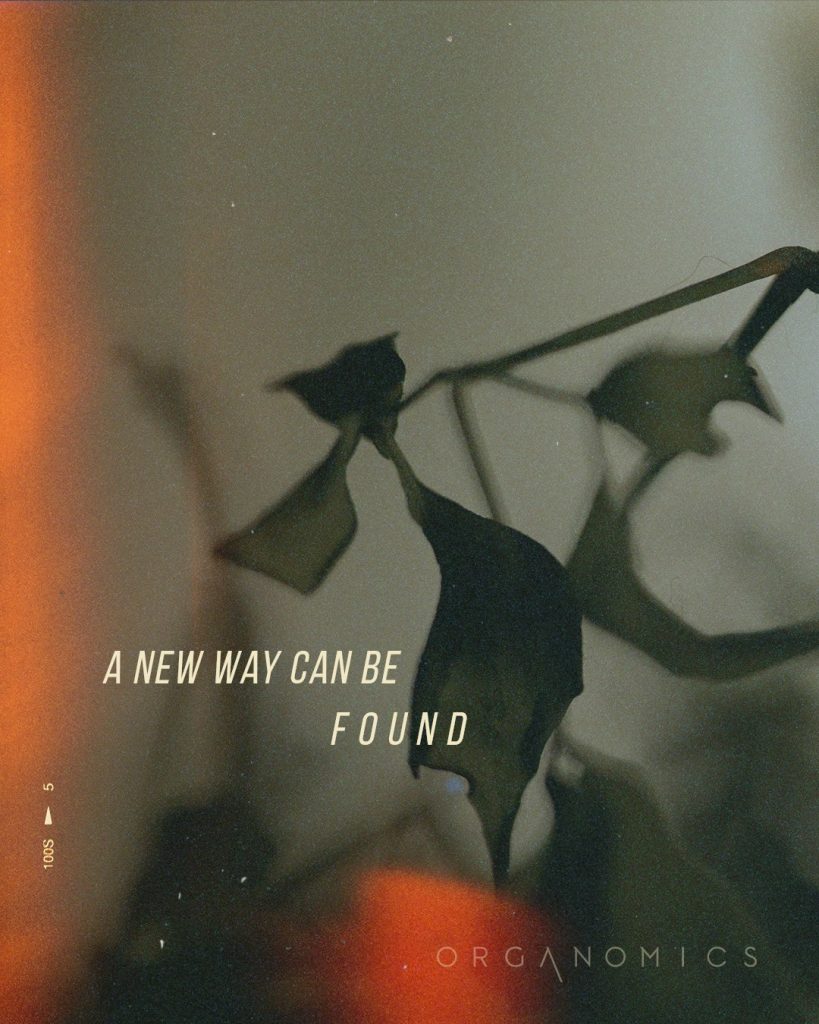
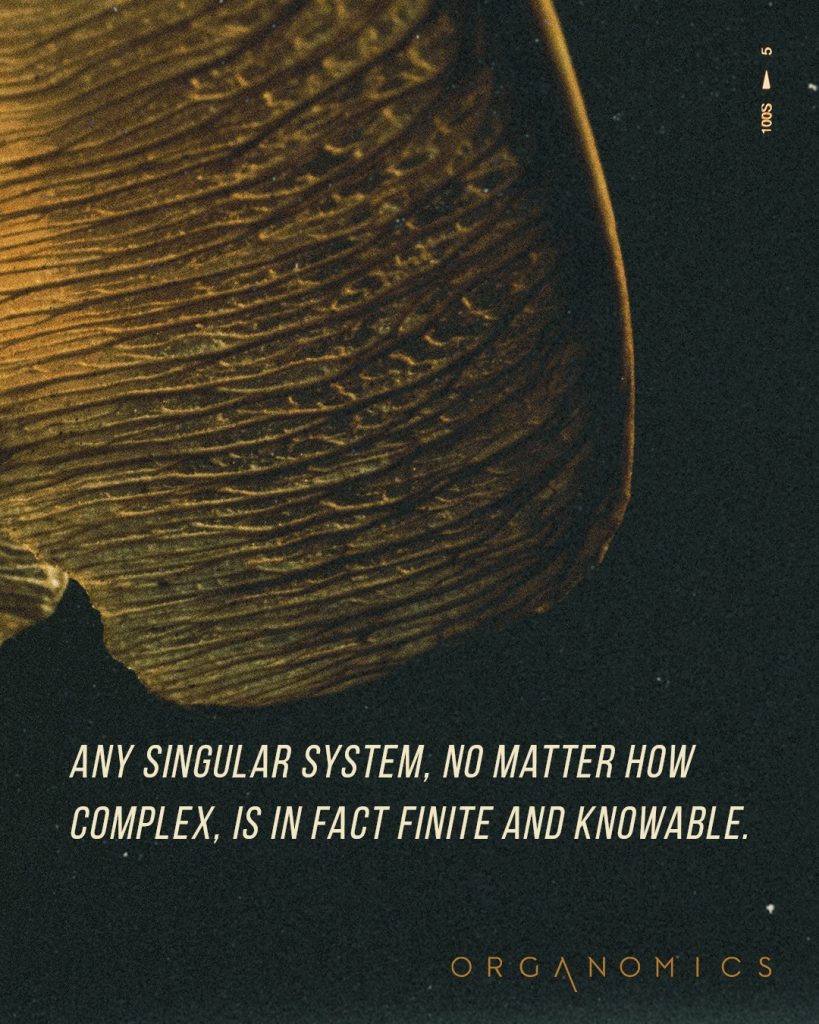
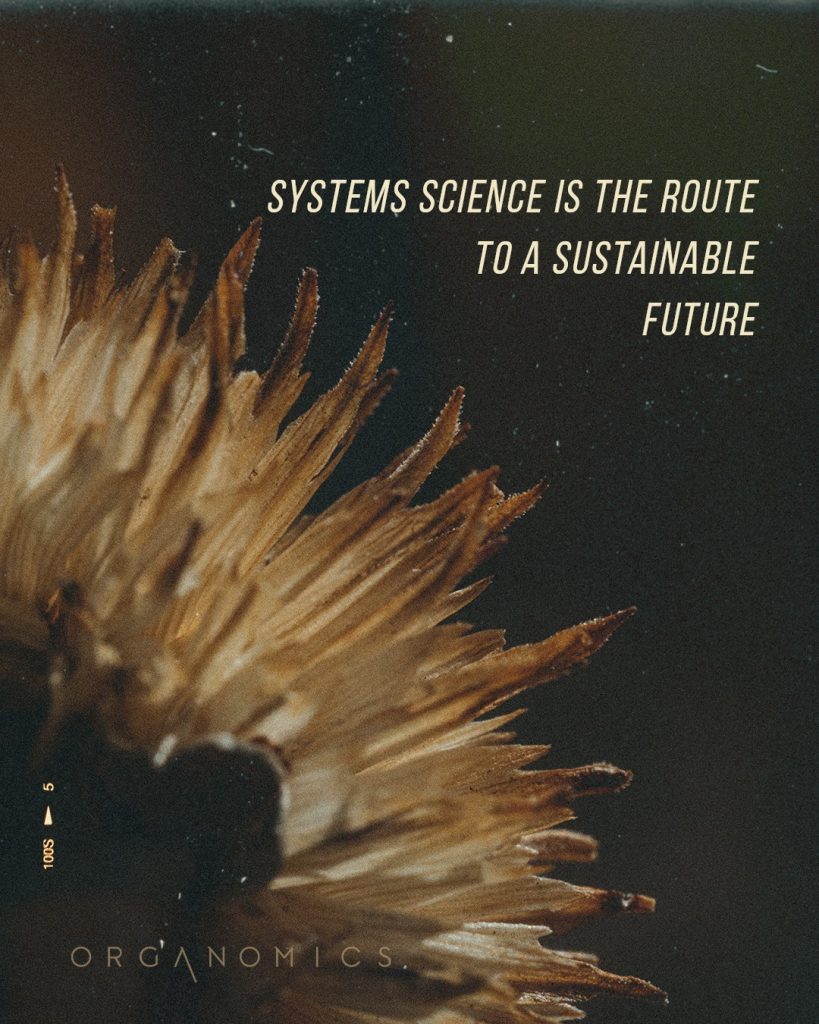
Continued reading:
The Tenets of Organomics VI – X
4 Books to Change the Future of Economics
*Footnotes
DSGE: Dynamic Stochastic General Equilibrium, MMT: Modern Monetary Theory,
UBI: Universal Basic Income, Poverty & Related Statistics Drawn From: The US Census Bureau, World Bank, International Food Policy Research Institute, the Human Development Report, Wikipedia et al 2010 – 2020, RBE: Resource Based Economy,
referencing the work of Jacque Fresco and his Venus Project including his RBE Theories, Designs and Experiments, Thiel Index to Measure Economic Inequality:

Support Indie Publishing
Drop a tip in the jar, so we can keep doing what we’re doing, and bring you our next projects at Arch + Gravity, Ink Tone and The Shadow Lab. Thanks! We’ll also add you to the list, and update you with the inside scoop when new projects are coming out.
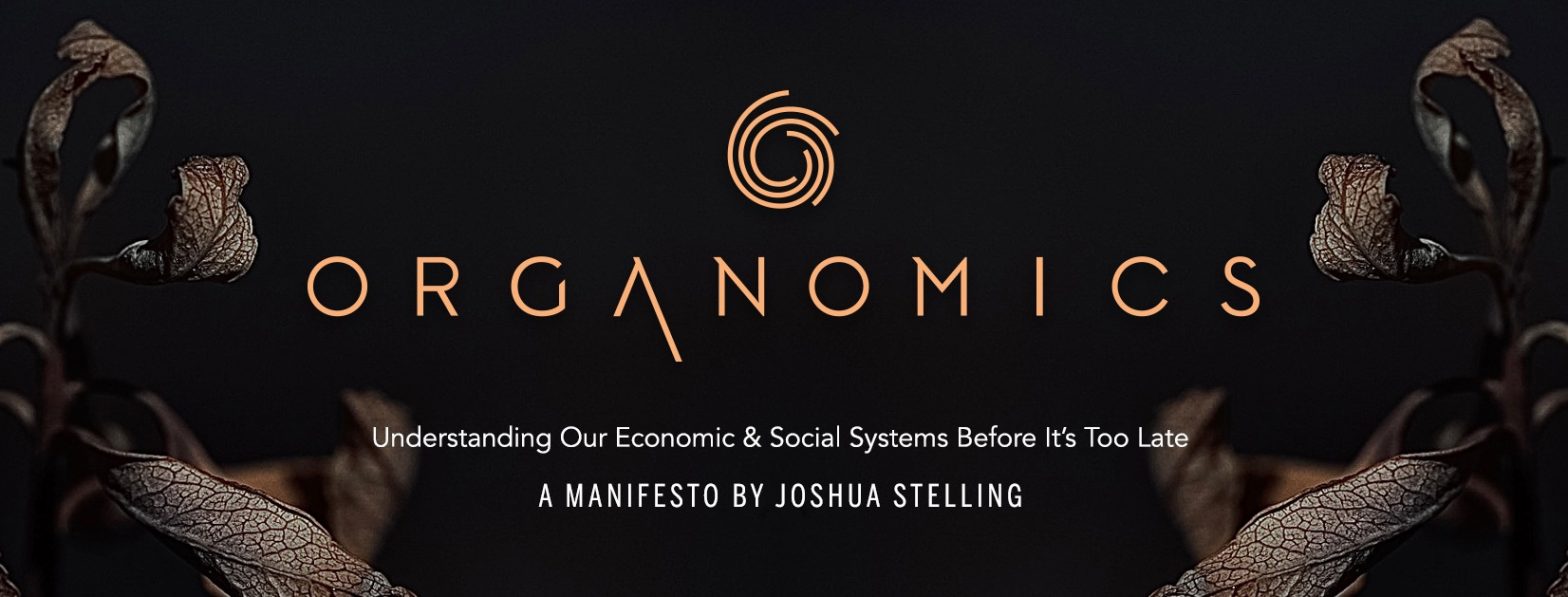
Agreed! We are “under the affluence” and “Must Surrender to Win,” surrendering our self-centered arrogance and ego to the truth, the reality. I believe it is a process of change! People learn either slowly by repetition or quickly by strong emotion! I see many of us “hitting bottom” from the increasing pain of climate change. We are spiritual people having a human experience is a mantra of recovery from the suicidal addiction of “ more” (and all other life-threatening addictions.
Change can be sudden but it’s still a process. (See “The Grief Process” by Elizabeth Keubler Ross) and we need support to grow through it:
Denial ( lots of folks stuck there),
Bargaining (think greenwashing and other half-measures)
Anger (useful for fight or flight adrenaline but deadly to thoughtful use of its powerful energy) “one letter short of danger,” I’ve been told. And “Resentment: Like taking poison expecting someone else to die,”
Next stage is
-Sorrow, “mourn the death of the dream such as “”You and me against the world, the 2.6 children and the house with the white picket fence” or other illusions! Tears are essential to heal the loss.
-Acceptance! At last, I’ve allowed my feelings (my Spirit Guides) and I can put them aside to deal logically and practically:
Well, this IS the way things are. What’s best to do now?
Then I can join with others of like mind to accomplish great life-sustaining things.
Positive Change takes choice, practice and participation. Then watch the “miracles” happen!
Btw, A miracle is a shift in perception” from ACIM. And don’t forget, Einstein said, “There are 2ways to live your life. One is though nothing is a miracle. The other is as though everything is a miracle.” Don’t quit before the miracles happen!
Agreed Deb. Thanks for the thoughtful response! The stages of grief are definitely more than casually relevant to the required letting go of our illusions. Feel free to join our discussion at the Organomic Theory Facebook Group over here, anytime: https://www.facebook.com/groups/536366581081539/